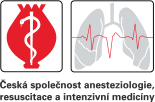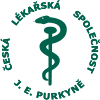Anesteziologie a intenzivní medicína, 2010 (vol. 21), issue 5
Rekombinantní aktivovaný faktor VII v léčbě závažného krvácení u nehemofiliků - "vyšetřování (s využitím klinických randomizovných studií) skončilo, zapomeňte?"Editorial
Vladimír Černý
Anest. intenziv. Med. 2010;21(5):227-228 
Recombinant activated factor VII (rFVIIa) in the treatment of life threatening post-partum haemorrhage - data from the UniSeven clinical registry in the Czech RepublicIntensive Care Medicine - Original Paper
Seidlová Dagmar, Blatný Jan, Penka Miroslav, Ovesná Petra, Brabec Petr, Ševčík Pavel, Ventruba Pavel, Černý Vladimír
Anest. intenziv. Med. 2010;21(5):229-238 
Objective:To analyze the data related to the treatment of 80 Czech patients with life threatening post-partum haemorrhage recorded in the UniSeven clinical registry in years 2004-2009. Design:Retrospective, observational, multicentre study. Setting:The ICUs and Obstetrics Departments of university and regional hospitals in the Czech Republic. Materials and methods:UniSeven is an international academic project of Masaryk University in Brno, Czech Republic, focused on the recording of clinical data related to the "off-label" use of rFVIIa (Novo Seven) in life threatening bleeding. Data from 80 case...
Application of recombinant factor VIIa for refractory bleeding in patients with liver trauma - case reportsIntesive Care Medicine - Case Report
Mannová Hillová Jitka, Seidlová Dagmar, Mašek Michal, Zimová Iveta, Ševčík Pavel
Anest. intenziv. Med. 2010;21(5):239-244 
Surgical treatment is required in unstable trauma patients with liver damage and patients with grade IV-V liver trauma. The practice of damage control surgery has become widely accepted as a standard strategy in the management of these patients. A necessary part of the complex treatment must be the management of coagulopathy. Application of recombinant factor VIIa has shown to be effective when other modalities had failed.Recombinant factor VIIa (rFVIIa ) treatment in patients with extensive liver damage is presented in three case reports. In the first one, the rFVIIa was administered for the treatment of coagulopathy when standard therapy had...
Effect of early use of high frequency oscillation in children with respiratory failureIntensive Care Medicine - Original Paper
Koudelková Ludmila, Košut Peter, Žurek Jiří, Marek Lukáš, Fedora Michal
Anest. intenziv. Med. 2010;21(5):245-250 
Objective:To demonstrate the effect of high frequency oscillation (HFOV) on gas exchange in children with ARDS. To compare the groups with early and late application of HFOV for different variables. Design:Retrospective analysis of the group of patients hospitalized from January 1994 to December 2006. Setting:Department of Paediatric Anaesthesiology and Resuscitation, University Hospital. Materials and methods:Fifty patients with severe hypoxaemic respiratory failure were included. The patients were included in the "early" group (n = 30, 60%) if commenced on HFOV within 24 hours...
Patients with pandemic influenza A (H1N1) 2009 in intensive careIntensive Care Medicine - Original Paper
Džupová Olga, Havlíčková Martina, Helcl Miroslav, Kabelková Maria, Kulichová Jana, Roháčová Hana, Beneš Jiří
Anest. intenziv. Med. 2010;21(5):251-257 
Objective:To describe the epidemiological and clinical characteristics, treatment and clinical outcome of patients with severe pandemic influenza. Design:Retrospective observational study. Setting:Department of Infectious Diseases, University Hospital. Materials and methods:This is a retrospective study of patients hospitalized on the ICU from August 1, 2009, to January 31, 2010, with influenza symptoms and Pandemic A (H1N1) 2009 virus infection confirmed by rtPCR or specific antibody detection. Results:Sixteen patients fulfilled the inclusion criteria (9 men and...
Spontaneous delivery during ECMO for H1N1 pneumonia-related ARDS - case reportIntesive Care Medicine - Case Report
Kunstýř Jan, Lipš Michal, Bělohlávek Jan, Prskavec Tomáš, Mlejnský František, Koucký Michal, Sebroň Václav, Stříteský Martin, Bartáková Hana, Balík Martin
Anest. intenziv. Med. 2010;21(5):258-261 
Authors present a case report of a woman in the 24th week of pregnancy who acquired intractable swine influenza-related ARDS. Failing conventional ICU therapy including aggressive mechanical ventilation, she was transferred to an ECMO centre where veno-venous (VV) ECMO provided oxygenation and ventilation together with the sanation of the lung injury and barotrauma. Thirty hours post commencing the VV-ECMO she spontaneously delivered. Besides a temporary cessation of the heparin infusion the delivery did not require special measures or changes to the ECMO therapy. The authors discuss the peri-partum issues in pregnant women suffering from...
6. CELOSTÁTNÍ KONFERENCE UMĚLÁ PLICNÍ VENTILACE 2010. I. PLENÁRNÍ PŘEDNÁŠKY
Anest. intenziv. Med. 2010;21(5):263-275 
6. CELOSTÁTNÍ KONFERENCE UMĚLÁ PLICNÍ VENTILACE 2010. II. PNEUMONIE NA JIP
Anest. intenziv. Med. 2010;21(5):275-281 
6. CELOSTÁTNÍ KONFERENCE UMĚLÁ PLICNÍ VENTILACE 2010. III. VENTILACE MIMO JIP
Anest. intenziv. Med. 2010;21(5):281-288 
6. CELOSTÁTNÍ KONFERENCE UMĚLÁ PLICNÍ VENTILACE 2010. IV. PEDIATRICKÁ SEKCE
Anest. intenziv. Med. 2010;21(5):288-291 
6. CELOSTÁTNÍ KONFERENCE UMĚLÁ PLICNÍ VENTILACE 2010. VII. KAZUISTIKY
Anest. intenziv. Med. 2010;21(5):292-293 
6. CELOSTÁTNÍ KONFERENCE UMĚLÁ PLICNÍ VENTILACE 2010. VIII. VOLNÁ SDĚLENÍ
Anest. intenziv. Med. 2010;21(5):293-296 
Konference a kongresyNews from CSARIM
Anest. intenziv. Med. 2010;21(5):297-300 
Výborová schůze ČSARIMNews from CSARIM
Anest. intenziv. Med. 2010;21(5):300-301 
Zprávy ČSIMNews from CSIM
Anest. intenziv. Med. 2010;21(5):302-303 
Za profesorem MUDr. Zdeňkem KalendouPersonalia
Jiří Pokorný
Anest. intenziv. Med. 2010;21(5):304 




